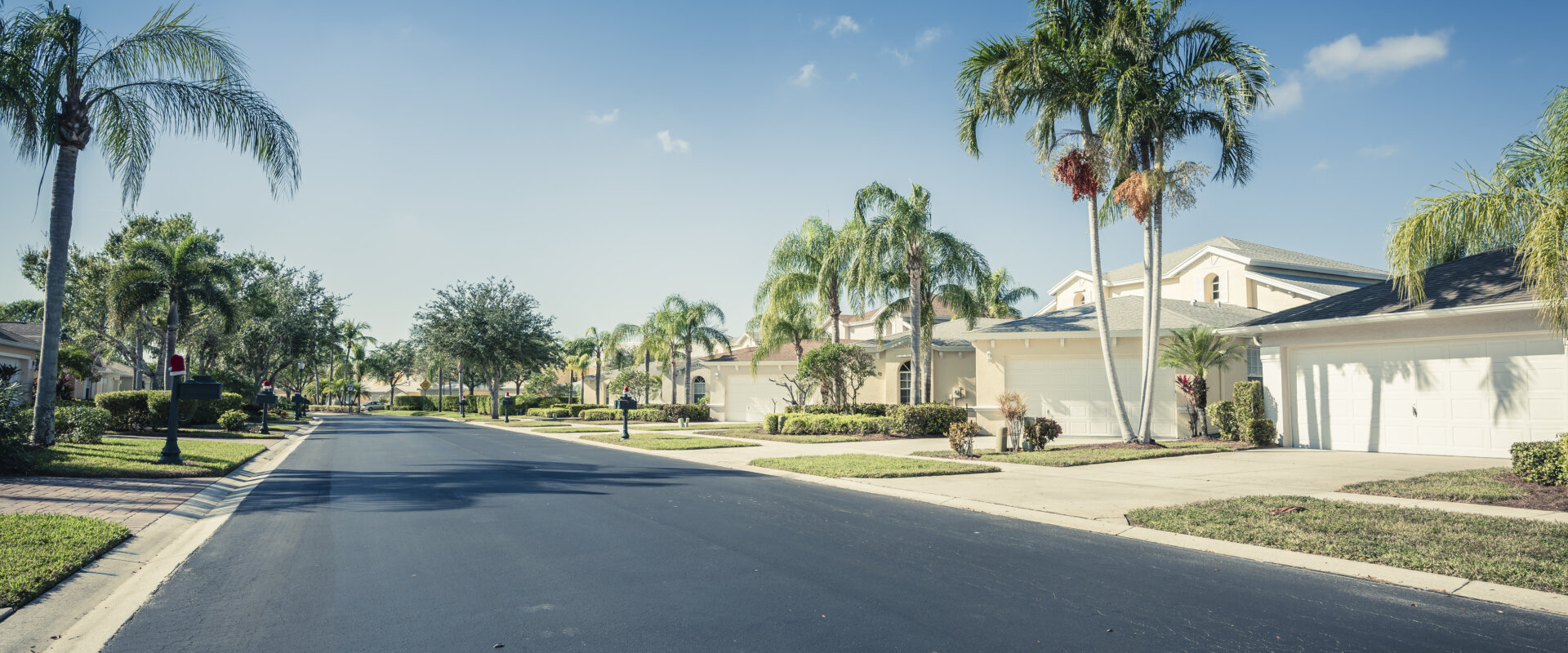Not all investment properties are created equally. Do you know what separates a suitable investment property from a bad one? Many novice investors will jump into an investment purchase without carefully evaluating what will be involved to turn a profit. Our latest post will help you learn how to tell a suitable investment property from a bad one when investing in Florida real estate.
Investment real estate in Florida and the surrounding areas is an excellent way to create additional income. Before buying, you will want to know how to tell good investment properties from bad ones. You don’t want to be stuck with a bad house or over your head with repairs. Below are a few things you should always consider before buying investment property in the Florida area.
The Neighborhood
You should know a good deal about a neighborhood before investing in it. Is it considered up and coming? What does the future development of the area look like? Future improvements? Look around at the local businesses. Is there a Starbucks on the corner or a discount store? Major retailers pay big money to study the neighborhoods they set up shop in. When the area is filled with high-end grocery stores and specialty coffee shops, you will likely find a larger market of prospective tenants who will be able to pay the rent each month. Understand the demographics of the buyers and renters in the area. If it is primarily families, focus on making the yard pleasant, investing in properties with multiple bedrooms and baths. If it is more young singles or empty nesters, you can look at smaller properties near lots of local businesses. You should always pass on a bad neighborhood, and it is rarely worth the hassles and headaches you are likely to encounter.
Comparable Sales
Before selling, you should research what other properties in the neighborhood are selling for and how long they are on the market. If the days on the market are dwindling over time, it might be a great time to buy and resell for a profit, as this shows greater demand in the area. Also, look at what properties are renting for and vacancy rates. Are property managers offering specials such as free rent or other incentives? This may mean they are having trouble renting their units out. Always look at properties that have actually sold or recently rented. Simply looking at the listing prices won’t provide you with much information as the listing price can be whatever the owner wants… it doesn’t mean they will get it.
Risk vs. Reward
Before investing, you will want to analyze your financial risk vs. reward. There are several equations investors consider when considering a real estate investment. Some of these include the 70% rule, which states that you shouldn’t pay more than 70% of the after-repair value or ARV of the house. If you are renting out the property, you can consider the 1% rule, which states that you should be able to charge at least 1% of the property’s value in rent each month. While you should always consult with an accountant and other professionals, using these gauges will give you quick insight into the potential value of a property.
Limited Photos Or Advertising
Listing photos can sell a property. If there aren’t many photos in the listing or advertisement, it is likely because there isn’t much to photograph. Bad photos or a short description indicate that there aren’t many good things to say about the property.
It Has Been For Sale For A Long Time
If a house has been for sale or on the market for a long time, there is likely a reason. If other investors have been passing on it, it could signify a lemon, and you should stay away. Even if it is a beautiful house, keep your emotion out of it and ask yourself why the house hasn’t already sold. You can research the renovation history of the house and sales information and look into the title history to find out if there are liens on the home.
Poorly Done Repairs Or Additions
Suppose the repairs to a house were done poorly, whether by the owner or a wrong contractor. It would be best if you walked the other way. What other repairs were done poorly that you can’t see? Likely, the house wasn’t properly maintained, leading to big problems down the road. An owner who skimps on repair costs isn’t likely to pay the costs of properly maintaining the property. If there have been additions or renovations to the house, ensure all permits were pulled correctly, and there are no code violations.



